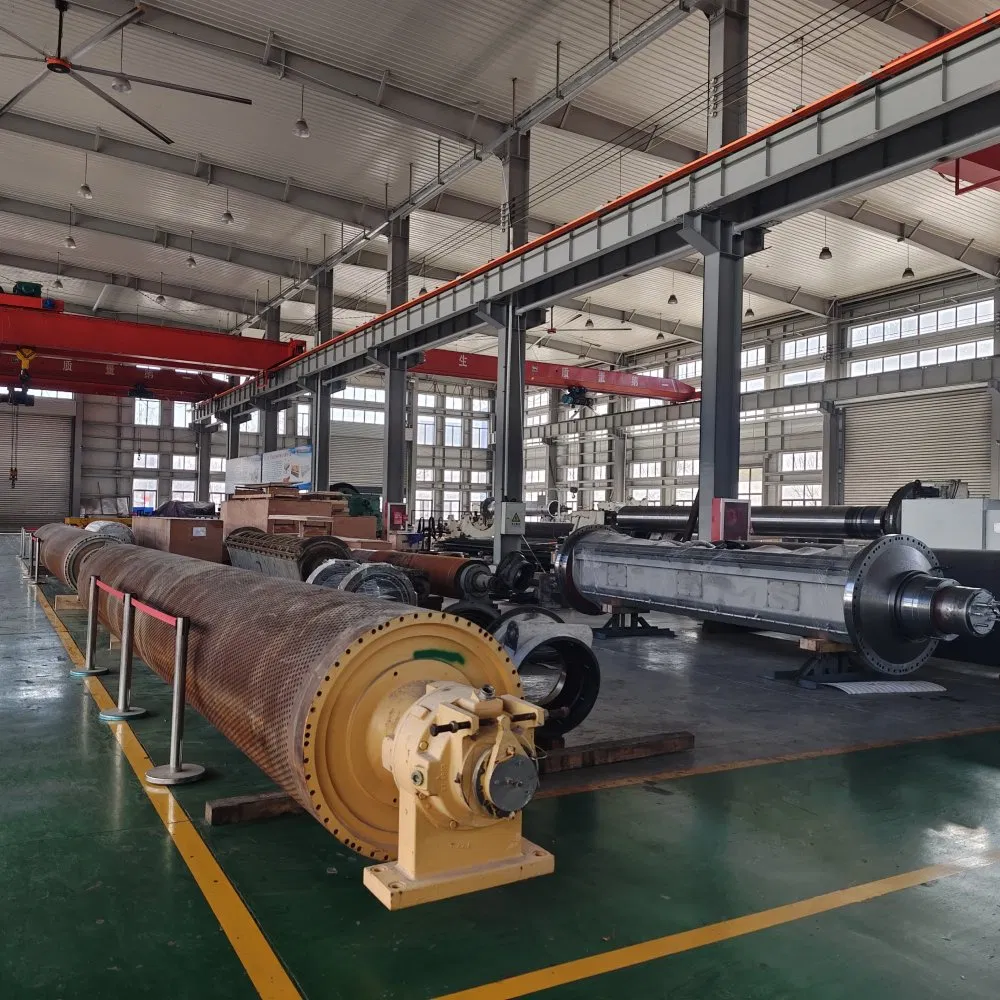Granite, renowned for its strength and durability, has long been a favored material for construction and industrial applications. Among its many uses, granite stone rolls stand out for their unique properties and the critical roles they play in diverse sectors. From food processing to metalworking, these precision-engineered tools offer a compelling combination of stability, resilience, and performance.
The design of a granite stone roll is a meticulous process, often involving advanced CNC machining and hand-finishing techniques. Starting with a solid block of high-quality granite, skilled artisans carve and shape the roll to precise specifications. The granite's inherent crystalline structure lends itself to incredibly smooth finishes, crucial for applications requiring uniform pressure and minimal surface imperfections. This meticulous attention to detail ensures that the finished product meets exacting tolerances and delivers consistent results.
Design Considerations
Several factors influence the design of granite stone rolls, including the intended application, the required dimensions, and the specific material properties needed. For example, rolls used in food processing often demand a higher degree of polish to prevent sticking and ensure hygienic operation. Conversely, rolls employed in heavier industrial settings might prioritize robustness and resistance to wear and tear over surface smoothness.
Material Selection
The type of granite selected also plays a vital role. Different granite varieties exhibit varying degrees of hardness, porosity, and mineral composition. Choosing the appropriate granite ensures optimal performance and longevity. Black granite, for instance, is often preferred for its density and resistance to staining, making it ideal for applications involving liquids or pigmented materials. Think of the smooth, cool surface of a rolling pin used in baking - a similar principle applies to granite stone rolls in various industries.
Benefits of Granite Stone Rolls
The benefits of utilizing granite stone rolls are numerous and often outweigh the initial investment. Their inherent stability, stemming from granite's high density and low thermal expansion, provides consistent performance even under fluctuating temperatures and pressures. This stability translates to predictable outcomes and reduced maintenance requirements.
Durability is another key advantage. Granite's inherent hardness and resistance to abrasion make these rolls incredibly long-lasting. They can withstand significant wear and tear, reducing downtime and replacement costs. This resilience contributes to a lower total cost of ownership, making them a cost-effective solution in the long run.
Furthermore, granite's non-reactive nature makes it suitable for a wide range of applications, including those involving sensitive materials. Unlike metal rolls, granite does not corrode or react with chemicals, making it ideal for food processing, pharmaceuticals, and other industries where contamination is a concern. Imagine rolling delicate pastry dough - granite's inert surface ensures the dough remains pure and unaffected.
Applications Across Industries
Granite stone rolls find applications in a remarkably diverse range of industries. In food processing, they are used for rolling dough, shaping candies, and grinding spices. In the leather industry, they are employed for embossing and finishing hides. Their temperature stability makes them valuable in the production of plastics and rubber, where precise temperature control is essential. Even in demanding environments like metalworking, granite rolls contribute to precision grinding and polishing operations.
Consider the precision required in crafting delicate chocolate confections – granite rolls contribute to the consistent thickness and texture crucial for achieving the perfect final product.
What factors would influence your choice between a granite stone roll and a roll made from a different material, say, stainless steel? What applications can you envision for granite rolls in your own industry or area of interest?
Maintaining Granite Stone Rolls
While granite is exceptionally durable, proper maintenance extends the lifespan and ensures optimal performance. Regular cleaning with mild detergents and water removes any residue and prevents buildup. Avoid harsh chemicals or abrasive cleaners, as these can damage the polished surface. Periodic inspection for chips or cracks is also recommended, especially in high-impact applications.
Conclusion
Understanding the design and benefits of granite stone rolls reveals their crucial role in numerous industries. From their robust construction and precise engineering to their diverse applications and long-term cost-effectiveness, granite rolls offer a unique combination of stability, durability, and performance. Their inherent properties make them a valuable asset in a wide range of applications, solidifying their position as an indispensable tool in modern manufacturing and processing.



